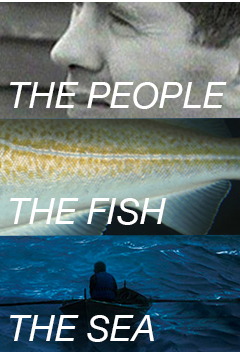How many earnest, well-meaning environmental programs have you found online that wind up being so very earnest and well-meaning that you fall asleep watching?
More
Gallery: What Happens to the Sea When?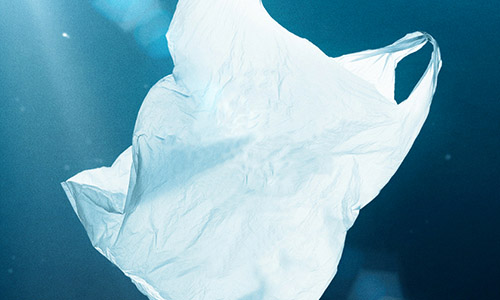
The Majestic Plastic Bag
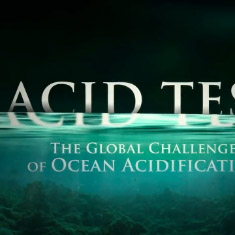
Acid Test
From the subtitle, you can tell this is going to be a presentation of Important Information by Serious People. 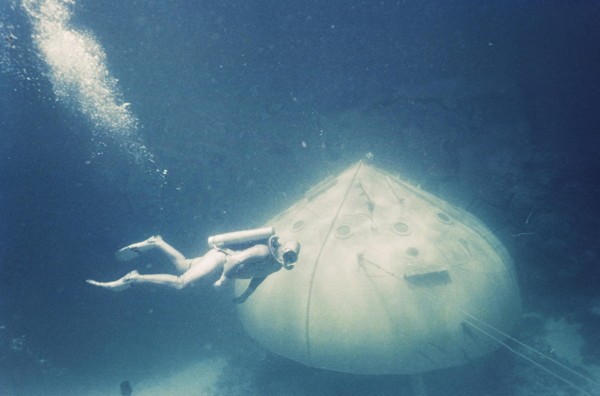
World Without Sun
Half a century before Finding Nemo, and half a century after Captain Nemo, Jacques Cousteau's documentary about the first manned undersea research station seems a bit like Jules Verne meets Boys Own Adventures. 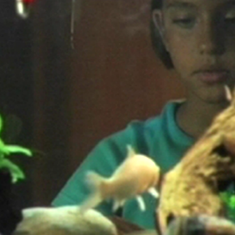
Carpa Diem
This video gem is the Second Prize winner of the "Water, Climate and... Action" video contest, organised by the United Nations World Water Assessment Programme.
More 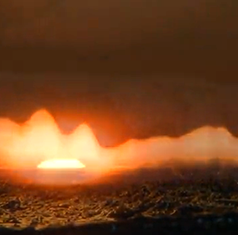
Inuit Knowledge and Climate Change
This view of climate change from the Inuk perspective is disturbing & fascinating – who else could decode the significance of tongue drifts?
More 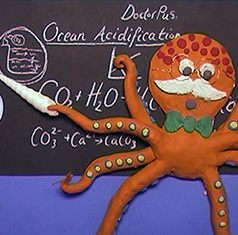
The Other CO2 Problem
Students from Ridgeway School in Plymouth make their concerns about the state of the world's oceans clear through a hard hitting film on ocean acidification.
More
It's often easier for media storytellers to create engaging documentaries about people, or fish, than to tackle a more scientific approach to the oceanic environment.
But I think you'll find that the features in this gallery differ from most of the dry factual videos you find online; they employ dramatic imagery, humour, insight and childlike curiosity to "pull you in" to stories of the marine environment. You may also find it interesting to notice what's not in this gallery: online documentaries about oil spills, for instance. Does this reflect a problem with financing productions about such issues? How much of what you find online is dependent upon who pays the piper? The Majestic Plastic Bag
How many earnest, well-meaning environmental programs have you found online that wind up being so very earnest and well-meaning that you fall asleep watching?
Yes of course we mustn't throw those plastic bags away, we know, we know. So how does a documentary maker punch an important point in a delightful 4-minute short without being boring and preachy? Well, for one thing, having Jeremy Irons as your narrator doesn't hurt. Related:Synthetic Sea(Video, 10 minutes. Bill MacDonald, Algalita Research Foundation, USA 2010.)Description:The Pacific Gyre is the world biggest garbage dump, twice the size of the USA. The plastic breaks down into tiny "nurdles" that coincidentally mimic fish eggs, and poison fish and birds who mistake them for food. The juxtaposition of these uncannily similar microscopic images of food and plastic will curdle your blood. Click to watch.Acid Test: The Global Challenge of Ocean Acidification
From the subtitle, you can tell this is going to be a presentation of Important Information by Serious People.
The largely unknown problem of ocean acidification poses a challenge to life in the seas and the health of the planet. Conveying facts and figures engagingly via scientific talking heads, in the absence if an on-the-ground human storyline is always a challenge, but this film manages it far better than most informational videos you can find online. In audio documentaries it's commonplace for the author to voice her own narration, but in American film documentaries it is de rigeur to cast a famous actor as narrator. In this case, the famous actor is Sigourney Weaver. The information she presents is alarming, the visuals are absolutely stunning, and unlike some info-documentaries, this film doesn't spin its wheels in a mire of hopeless gloom about the approaching environmental apocalypse. At about 15 minutes in, it begins to lay out solutions to the acidification problem – that is, of course, if we humans really want to take action on solutions today, instead of leaving a soon-unstoppable mess for the next generation to grapple with. For media storytellers, this is a perennial question: can documentaries (and websites like this one) help to propel action? It's what feature-makers must secretly believe: that if only we can make a program sufficiently strong and beautiful, then viewers and listeners will wake up tomorrow morning and behave - at least a little - differently. The journalist's secret religion: that art and story can change the world. Is this realistic? After watching this film, are you more likely to do anything about acidification? Has a documentary ever had a life changing affect on you? Related:NASA Discovering Dead Zones in the Oceans and Lakes(Video, 3 mins.)Description:An info-animation detailing how phytoplankton produce ocean dead zones, and how NASA is able to track their blooms from space. Click to watch.World Without Sun
Half a century before Finding Nemo, and half a century after Captain Nemo, Jacques Cousteau's documentary about the first manned undersea research station seems a bit like Jules Verne meets Boys Own Adventures.
This is really a documentary really about the "oceanaughts", with marine life as the supporting cast, but the footage nevertheless offers a remarkable portrait of that life which (in 1964) had not been seen before. Made three years before the Torrey Canyon supertanker stranding, Cousteau's underwater world is remarkably innocent of threats to marine environments. Nowhere in this documentary do we hear words like “pollution”, “acidification”, “CO2 sequestration”, “overfishing” or “destruction of coral reefs”, let alone “Great Pacific Trash Vortex” - terms that are alarmingly familiar today. Did these concerns not exist then, were we just ignorant of them, or have we humans accelerated our destruction of the marine environment so rapidly in the following half century? Related:Front Fell Off(Video, John Clarke & Brian Dawe, 2007.)Description: With all the concerns about supertanker accidents and ocean pollution, it's good to know there's not really any problem as long as the vessels are towed out of the environment. Click to watch.Gulf Oil Spill(Video, John Clarke & Brian Dawe, 2010, 3 mins)Description: Ocean disasters often mean oil spills. A lot of people are very sentimental about the sea. No worries. Click to watch.Carpa Diem
This video gem is the Second Prize winner of the "Water, Climate and... Action" video contest, organised by the United Nations World Water Assessment Programme.
An apartment. Bedtime. A little girl lovingly watches a fish (a carp) swimming in an aquarium, while her younger brother is playing in the bathroom, listening to music and letting the water run in the sink. And run. And run. Like him, many of us (in the developed world where we have running water) don't think about the value of water. Little girls and their brothers in lesser developed countries, of course, don't have the luxury of this problem. And is that the question? Does “progress” move us further and further away from the natural world, and from an appreciation of the need to conserve its resources? Does it have to? Inuit Knowledge and Climate Change
This view of climate change from the Inuk perspective is disturbing & fascinating – who else could decode the significance of tongue drifts?
It scorns the "father-knows-best" attitudes of urban enviro-evangelists who wish to stop the seal hunt and save the polar bear, but also expresses distrust of southern scientists and takes issue with scientific opinion about species endangerment. Around the world, it is frontline fishers and hunters who are most directly affected by climate change, and who may notice dangerous warning signs long before they come to the attention of government bureaucrats in urban offices. How much credence should be given to their traditional knowledge, and how can it be squared with scientific consensus? When the North Atlantic cod stocks collapsed, fisheries science was famously caught napping – but does that mean careful scientific approaches can be discredited? How should we best integrate – or should we integrate – science with traditional knowledge? Related:Who Says I Can't Fish?(Video, Charlotte Smith, 2011.)Description: A decade ago European fish stocks appeared to be in irretrievable decline. Click to watch.Fisheries Management Disaster(Video, Chuck Lapp, 2002, 64 mins)Description: The struggle of inshore hook & line fishermen of Cape Sable Island, Nova Scotia to preserve their sustainable fishery. Click to watch.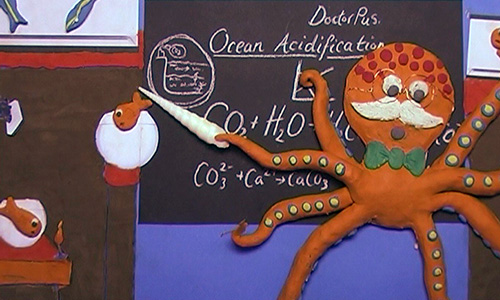
The Other CO2 Problem
Students from Ridgeway School in Plymouth make their concerns about the state of the world's oceans clear through a hard hitting film on ocean acidification.
Characters from Poseidon's Kingdom beneath the sea lament that Doctorpus, Britney Star, Michelle Mussel, Derek the Diatom and other subsea creatures are suffering as the ocean moves towards acidity - a result of CO2 emissions produced by human activities.
Click to watch the video.
Related:Guardians of our Oceans(Video, Euronews, 2010, 26 mins)Description: So you're worried about effect of human activity and pollution on the marine environment, but you thought that much of the excess carbon dioxide we pump into the atmosphere gets sequestered in the seas, no problem, right? But what is the effect of that increased CO2 in the oceans? This chirpy information documentary zips back and forth between locations in Europe & Africa, with lots of zodiacs and gorgeous underwater visuals. It finds that the effects of overfishing are exacerbated by excess CO2 concentration: the fish are smaller. It promotes sustainable fishing methods, but discovers that not all European consumers appreciate paying a higher price for sustainably-caught fish. It also considers underwater seismic blasting, which can drive deafened whales and dolphins to beach themselves. Click to watch.Just Another Fish Story(Video, Molly Menschel, 2005, 9 mins)Description: Ten years ago, the people of Lubec, Maine, were met with an unpleasant surprise: an enormous finback whale had washed onto the beachfront of their tiny coastal town. Click to watch.Related links:LinksLaguna Madre(Audio, 18 mins) Alan Weisman, Homelands Productions 2001. Daniel Pauley: The ocean's shifting baseline (Video, TED Talk, 9 mins) A census of the ocean (Video, TED Talk, 17 mins) Tides of Resilience (Audio, 52 mins) by Rodney Dekker, ABC Radio 2008 Where the Bay Becomes the Sea (Video, John Brett NFB 1985, 29 mins) |
